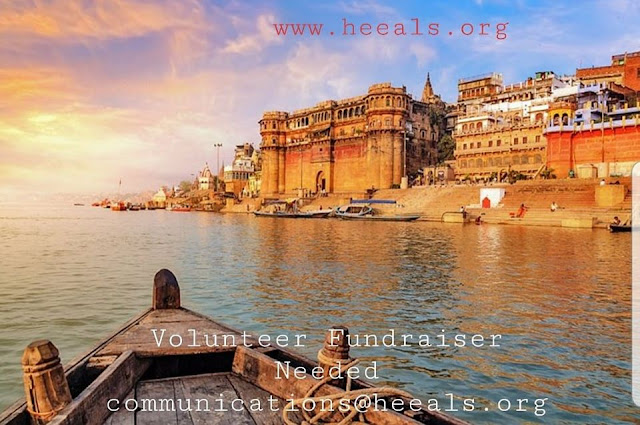World mosquito day is celebrated annually on August 20. It is a commemoration of a British doctor, Sir Ronald Ross’s discovery in 1897 that ‘female mosquitoes transmit malaria between humans’. The London School of Hygiene and Tropical Medicine organizes world mosquito day celebrations every year, since the 1930s.
Mosquitoes
are one of the deadliest animals in the world. Their ability to carry and
spread diseases to humans causes millions of deaths every year. There are
several different mosquitoes that can carry many different diseases. Aedes,
Anopheles, Culex mosquitoes act as vectors (living organisms that can transmit
infectious diseases between humans or from animals to humans) for the following
diseases-
Aedes: Chikungunya, Dengue fever, Lymphatic filariasis, Rift Valley
fever, Yellow fever, Zika
Anopheles: Malaria, Lymphatic filariasis (in Africa)
Culex: Japanese encephalitis, Lymphatic filariasis, West
Nile fever
Facts about mosquito borne diseases:
·
Female
Anopheles culicifacies is the main vector of malaria and commonly feeds on
cattle as well as humans.
·
Anopheles (Vector
of malaria) breeds in rainwater pools and puddles, borrow pits, river bed
pools, irrigation channels, seepages, rice fields, wells, pond margins,
sluggish streams with sandy margins.
·
Anopheles
mosquito mostly bites between dusk and dawn.
·
Female Aedes
aegypti transmits dengue, chikungunya, zika and yellow fever diseases to
humans.
·
Ae.
aegypti bites most frequently during daytime, and peak biting periods are
early in the morning and in the evening before dusk.
·
Aedes
aegypti mosquito breeds in any type of manmade containers or storage containers
having even a small quantity of water.
·
Eggs
of Aedes aegypti can live without water for more than one year.
·
Ae.
aegypti usually fly an average of 400 metres, but it can be transported
accidently by humans from one place to another.
·
Only
female mosquitoes require a blood meal and bite animals while male mosquitoes
do not bite but feed on the nectar of flowers or other suitable sugar
source.
Prevent mosquito borne diseases by ‘Integrated
vector management (IVM)’: IVM includes:
(a) Vector surveillance- Larval surveys
and adult surveys are important for early detection of mosquito population so
that proper control measures can be initiated at an early stage.
(b) Vector management- It includes methods to
eliminate mosquito breeding and adult mosquito population. These are –
(i) Environment
management:
It includes efforts to
reduce actual or potential larval (immature stages of mosquitoes) habitats in
and around houses by:
·
Covering
all water containers in the house to prevent fresh egg laying by the vector.
·
Emptying
and drying water tanks, containers, coolers, bird baths, pets’ water bowls,
plant pots, drip trays at least once each week.
·
Removing
discarded items that collect rainwater from open spaces.
·
Regularly
checking for clogged gutters and flat roofs that may have poor drainage.
(ii) Biological
control-
·
Introducing
larvivorous fishes (Gambusia/ Guppy) in ornamental water tanks/garden.
·
Using
bacteria, Bacillus thuringiensis (Bt H-14) as biological larvicide in stagnant
water. It poses no danger to humans, non-targeted animal species, or the
environment when used according to directions.
(iii) Chemical
control-
·
Chemical larvicides (such as temephos) are used in permanent big water
containers where water has to be conserved or stored because of scarcity of
water or irregular and unreliable water supply.
·
Adulticide- In areas where cases of dengue, chikungunya, and/or Zika
virus infection are detected pyrethrum spray or malathion fogging or ultra-low
volume (ULV) spray are recommended for the control of adult mosquitoes. Indoor
residual spraying with insecticides is used to control malaria.
(c) Personal protective/preventive measures-
·
using
insect repellent;
·
wearing
clothes (preferably light-coloured) that cover as much of the body as possible;
·
using
physical barriers such as screening the windows and doors.
·
sleeping
under mosquito nets even during day time.
·
patients
infected with dengue, chikungunya, or zika virus, their household members, and
community must follow personal preventive measures.
The National Vector Borne Disease Control Programme (NVBDCP)* It is one of the
technical departments of the Directorate General of Health Services under the
Ministry of Health and Family Welfare, Government of India and is the nodal
agency responsible for the prevention and control of all vector-borne diseases
in India.
WEDNESDAY, 12 AUGUST 2020
Spiritual Capital Of India
Volunteer & Explore Spiritual Capital Of India
Varanasi is a city in the northern Indian state of #UttarPradesh dating to the 11th century B.C. Regarded as the #spiritual #capital of #India, the city draws #Hindu pilgrims who bathe in the #Ganges River’s sacred #waters and perform funeral rites. Along the city's winding streets are some 2,000 temples, including Kashi Vishwanath, the “Golden Temple,” dedicated to the Hindu god Shiva.
Varanasi also known as Benares,or Kashi is a city on the banks of the river Ganges in Uttar Pradesh, India, 320 kilometres (200 mi) south-east of the state capital, Lucknow, and 121 kilometres (75 mi) east of Allahabad. A major #religious hub in India, it is the holiest of the seven sacred cities (Sapta Puri) in #Hinduism and #Jainism, and played an important role in the development of #Buddhism and #Ravidassia. Varanasi lies along National Highway 2, and is served by Varanasi Junction railway station and Lal Bahadur Shastri International Airport. Varanasi grew as an important industrial centre famous for its #muslin and #silk fabrics, perfumes, ivory works, and sculpture. #Buddha is believed to have founded Buddhism here around 528 BCE when he gave his first sermon, "The Setting in Motion of the Wheel of #Dharma", at nearby #Sarnath. The city's religious importance continued to grow in the 8th century, when Adi Shankara established the worship of #Shiva as an official sect of Varanasi. During the Muslim rule through the Middle Ages, the city continued as an important centre of Hindu devotion, pilgrimage, mysticism and poetry which further contributed to its reputation as a centre of cultural importance and religious education. #Tulsidas wrote his epic poem on Rama's life called #RamCharitManas in Varanasi.






